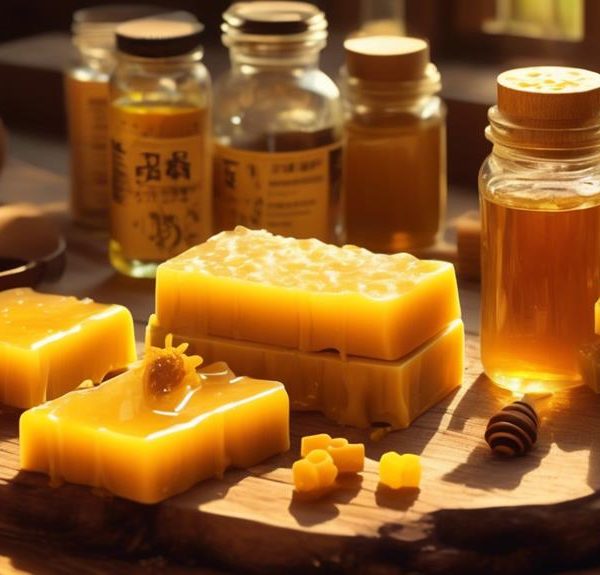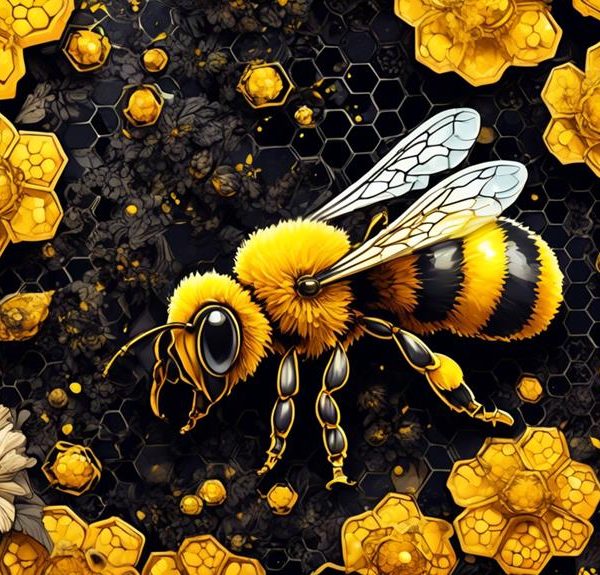Honey bees, crucial for our ecosystem, face looming threats; dive into their plight and discover if they're truly protected.
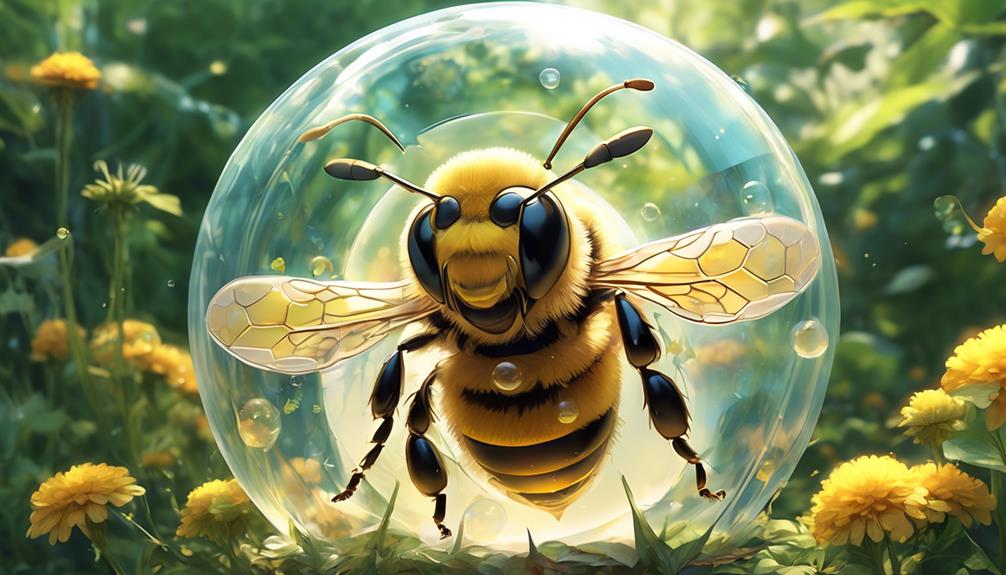
Are Honey Bees Protected?
By some strange coincidence, you've probably noticed the buzz around honey bees in recent news.
As you sip your morning coffee, sweetened perhaps with a touch of honey, you're likely unaware of the complex and precarious situation these tiny creatures find themselves in.
Honey bees, those small yet incredibly industrious insects, play a vital role in our ecosystem and food production, but are they truly protected?
It's a fascinating topic, filled with surprising facts and urgent questions.
Stick around, won't you? You're about to embark on a journey that'll certainly give you more to think about next time you reach for that honey jar.
Key Takeaways
- Honey bees play a crucial role in pollinating food crops and maintaining the balance of ecosystems.
- Honey bees are facing numerous threats, including habitat loss, pesticides, diseases, and climate change.
- Governments worldwide have implemented legal protections for honey bees, including the Endangered Species Act in the United States.
- Environmental measures, such as creating bee-friendly habitats and reducing pesticide use, contribute to the safety and well-being of honey bees.
The Importance of Honey Bees
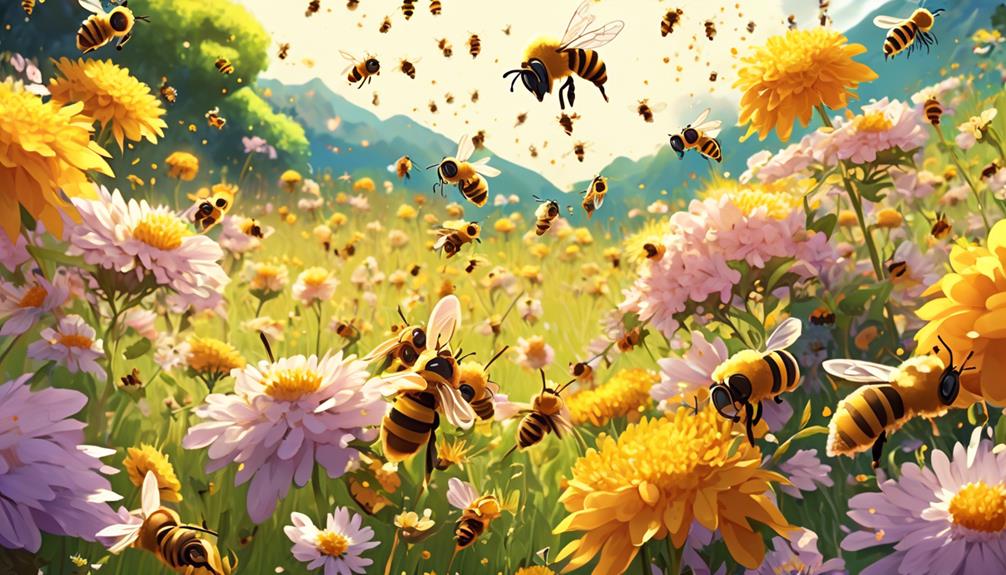
You mightn't realize it, but these tiny creatures, honey bees, play an enormous and indispensable role in our everyday lives, pollinating a staggering 70 of the top 100 food crops we consume, which accounts for about 90% of the world's nutrition. Without these buzzing workers, your daily meals would be significantly less diverse and healthy. Imagine a world without apples, almonds, berries, cucumbers, or even the coffee you can't start your day without – it's a bleak picture, isn't it?
But it's not just about food. Honey bees contribute to the entire ecosystem's balance by helping plants reproduce. This, in turn, provides food for other species, thus maintaining biodiversity. They're also responsible for producing honey and beeswax, commodities we use in various capacities, from food to cosmetics to candles.
However, despite their importance, honey bees face numerous threats, including habitat loss, pesticides, and climate change. We're in danger of losing these vital creatures unless we take serious action to protect them.
Current Threats to Honey Bees
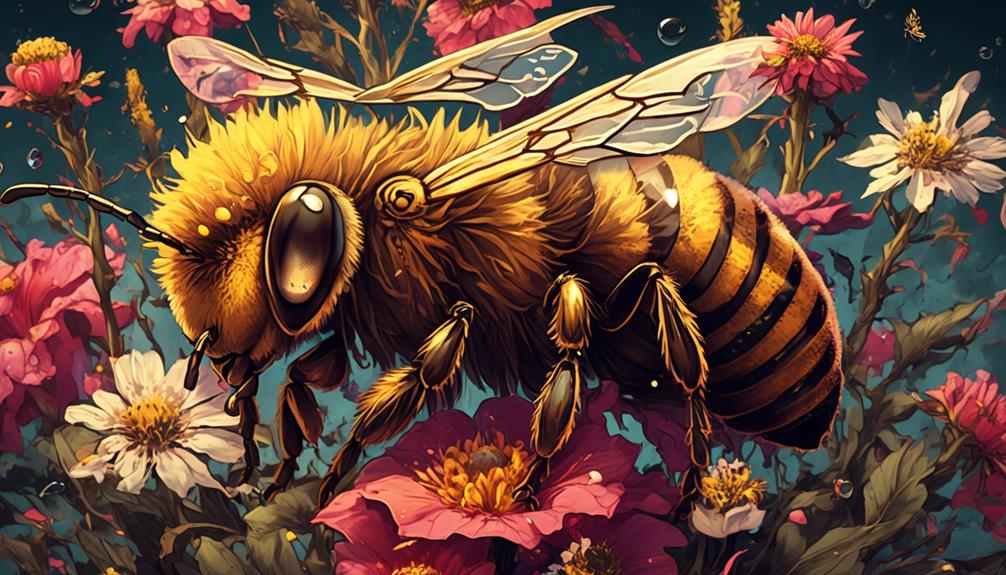
Despite their tireless work and irreplaceable role in our ecosystems, honey bees confront a looming storm of threats that jeopardize their survival and, in turn, our own. You may wonder, "What are these threats?" Allow me to shed some light.
Threat | Cause | Impact |
|---|---|---|
Habitat Loss | Urbanization & Agriculture | Reduced food sources |
Pesticides | Intensive farming | Direct harm or weakened immunity |
Disease & Parasites | Varroa mites & Fungal pathogens | Mortality & Colony collapse |
Climate Change | Global warming | Disrupted foraging & breeding patterns |
Habitat loss is a critical concern; urbanization and modern agriculture practices strip away meadows and wildflowers, leaving bees starving.
Pesticides, particularly neonicotinoids, are lethal to bees or can significantly weaken their immune systems, leaving them vulnerable to diseases and parasites.
Speaking of diseases, the Varroa mite and fungal pathogens like Nosema are causing havoc within colonies, often leading to entire colony collapses.
Lastly, climate change disrupts the delicate timing between bees and the flowering plants they rely on for food, causing a ripple effect that threatens their survival.
In essence, these threats aren't just bee problems; they're our problems too. So let's act now to protect these hardworking pollinators. The future of our ecosystems depends on it.
Legal Protections for Honey Bees
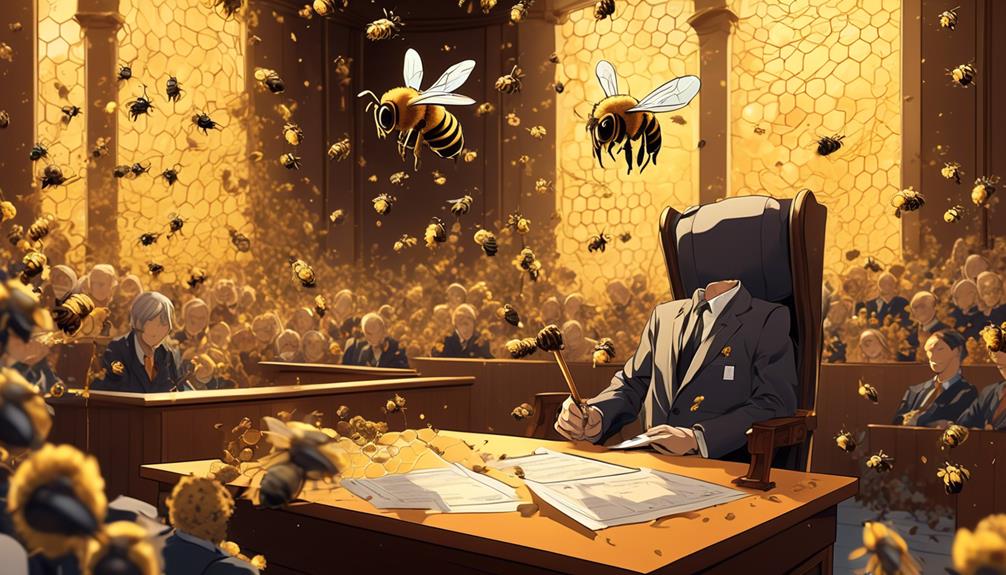
In the face of these imminent threats, various legal protections have been put in place to safeguard the survival of honey bees, and it's a fight we must all partake in.
Governments around the world, recognizing the crucial role bees play in our ecosystems, have started implementing laws and regulations to protect these tiny powerhouses of pollination.
In the United States, for example, the Endangered Species Act has been used to protect certain species of bees. In some states, laws have been enacted prohibiting the use of certain pesticides known to harm bees. You'll find similar regulations in countries across Europe, where they've even taken steps to create protected habitats for bees.
Furthermore, there are international agreements focusing on the conservation of bees. One such treaty is the Convention on Biological Diversity, which aims to preserve not just bees, but all forms of biological diversity.
But laws alone won't save the bees. It's up to us, individuals and communities, to pressure our governments to enforce these regulations and to make sure we're doing our part too.
Environmental Measures for Bee Safety
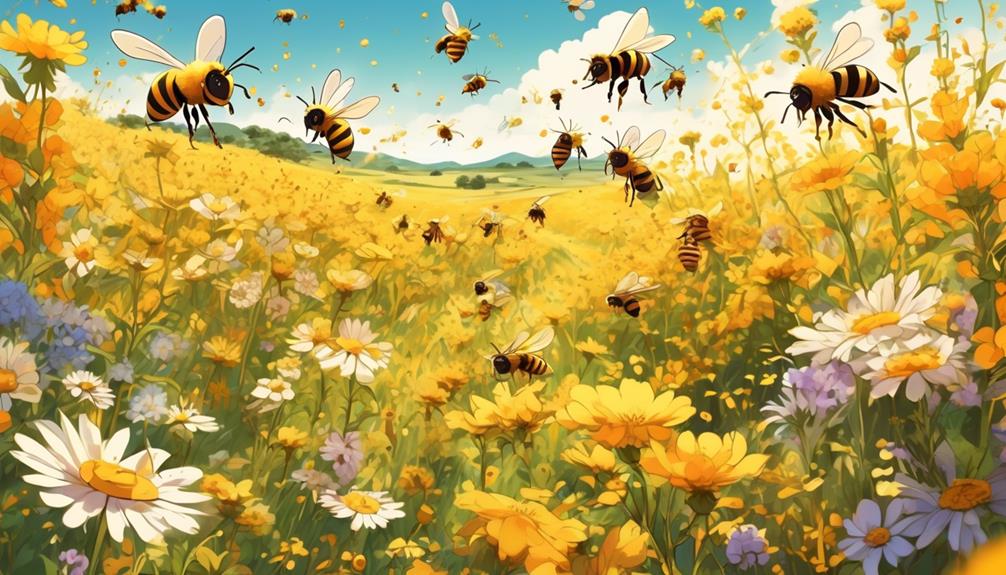
Alongside legal protections, a myriad of environmental measures are being rolled out globally to ensure the safety and prosperity of our invaluable honey bees. You can't underestimate their contribution to our ecosystem. They're not just buzzing, tiny creatures, they're tireless warriors, pollinating our crops and wild plants, sustaining the cycle of life.
One measure being implemented is the creation of bee-friendly habitats. You're seeing grassy meadows and gardens being transformed into vibrant havens of wildflowers, offering bees an abundance of pollen and nectar. Isn't it wonderful to see such a colorful, buzzing spectacle?
Another tactic being employed is the reduction of pesticide use. You're seeing farmers and gardeners alike turning to natural pest solutions and integrated pest management. It's a step towards safer, healthier environments for bees and other pollinators.
And don't forget about beekeeping. It's not just a hobby, it's an environmental initiative. You're seeing more and more people taking up beekeeping, providing safe spaces for bees to thrive.
Improving Honey Bee Protection
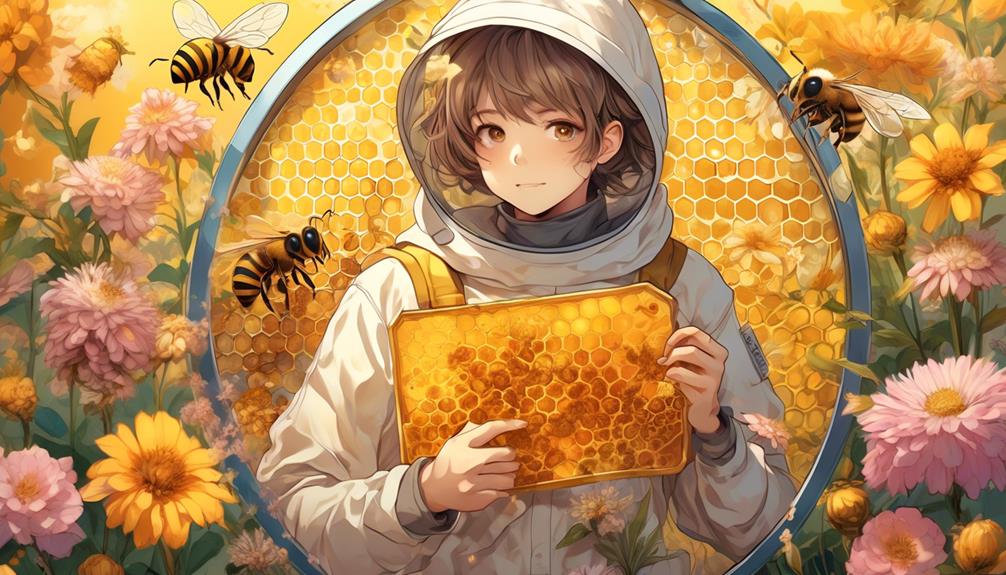
While these measures are making a marked difference, there's still more we can do to bolster the protection of our honey bees.
You can start by planting a bee-friendly garden filled with native and non-invasive plants. These will provide a rich source of nectar and pollen, necessary for bee nutrition.
Limiting pesticide use is another effective step. Many pesticides, while effective against pests, are also harmful to bees. Opting for organic methods of pest control can contribute significantly to bee conservation.
Finally, support local beekeepers. Their efforts in maintaining healthy bee populations are crucial. When you buy local honey, you're not only getting a high-quality product but also directly contributing to the protection of honey bees.
Promoting beekeeping in urban environments is a novel idea that's gaining traction. It's a brilliant way to increase bee populations while educating people about these industrious little creatures' immense value.
Frequently Asked Questions
What Are Some Common Diseases That Affect Honey Bees?
You're delving into a critical issue. Honey bees are susceptible to numerous diseases.
Varroa mites, for example, are parasites that can decimate entire colonies.
Nosema, a fungal infection, can disrupt their digestive system.
American Foulbrood, a bacterial disease, can wipe out larval bees.
These threats, among others, pose serious challenges to the health and survival of our precious pollinators.
It's crucial to remain informed and proactive in protecting them.
How Can Individual Households Contribute to the Protection of Honey Bees?
You can play a vital role in safeguarding honey bees right from your home! Start by planting bee-friendly flowers in your garden.
Avoid using pesticides as they're harmful to these little pollinators.
You could also set up a small water basin for them to drink from.
If you're really keen, consider becoming a backyard beekeeper. It's a rewarding hobby that directly contributes to the survival of these crucial creatures.
Every little bit helps!
What Is the Lifespan of a Typical Honey Bee?
You're asking about the lifespan of a typical honey bee. It's quite fascinating! Worker bees usually live for about six weeks during the summer, and up to five months in the winter. However, a queen bee can live for several years.
Each bee's life is a tireless race against time, filled with hard work and dedication to the hive. Their short but impactful lives are a testament to the strength and endurance of nature.
How Does the Process of Pollination Work in Honey Bees?
You've asked about the process of pollination in honey bees. It's fascinating, really.
When bees are collecting nectar, they brush against the flower's stamen, picking up pollen. This pollen sticks to the bee's body and when they move to the next flower, some of it rubs off on the pistil.
This transfer, known as pollination, is crucial for plant reproduction. It's a beautiful dance between nature and these hardworking creatures.
Can Honey Bees Be Kept Safely in Urban Environments?
Absolutely, you can keep honey bees safely in urban environments! It's all about creating the right habitat.
Bees need a variety of plants for nectar and pollen, as well as a clean water source. You'll also need to provide a suitable hive.
Urban beekeeping isn't only possible, it's a fantastic way to help the bees, enrich your city's ecosystem, and maybe even harvest your own honey. It's a win-win for everyone.
Conclusion
You've come to understand just how essential honey bees are for our ecosystem. They're under threat, but thankfully, there are laws and environmental measures helping to safeguard them.
Still, it's clear we need to step up our efforts to protect these crucial creatures. By staying informed and passionate about this cause, you can play a vital role in ensuring the survival of honey bees. After all, their future significantly impacts our own.

